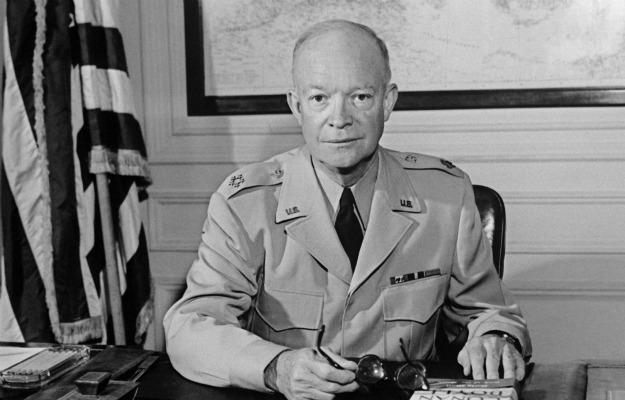Should We Be “One Nation Under God”?
This Flag Day is the 60th Anniversary of the bill passed by President Dwight Eisenhower to add the words “under God” to the Pledge of Allegiance. The addition of these two words was well-supported in 1954, but in recent years we have seen several court cases with the intent to remove those words by deeming them unconstitutional. Can we be “one nation under God” when there are people who do not want to be “under God”?
Why “Under God” Was Added
In his statement after signing the bill, President Eisenhower said that the addition of “under God” was “the dedication of our nation and our people to the Almighty. To anyone who truly loves America, nothing could be more inspiring than to contemplate this rededication . . . to our country’s true meaning” (The American Presidency Project).
The addition of these words was a response to the tensions of the Cold War. The words were added as a support of patriotism and religion (since communists did not believe in religion). Eisenhower also said that “[i]n this way we are reaffirming the transcendence of religious faith in America’s heritage and future; in this way we shall constantly strengthen those spiritual weapons which forever will be our country’s most powerful resource, in peace or in war.”

Opposition to “Under God”
Many of the court cases against the Pledge have used the First Amendment of the Bill of Rights as a means of support. It reads that “[c]ongress shall make no law respecting an establishment of religion” (archives.gov). The Pledge of Allegiance could be seen as respecting an establishment of religion since the words “under God” can be seen as applicable only to religions that believe in God.
I respect this side of the issue since I can see how those who do not believe in God may feel undermined and repressed. Deseret News reports that David Niose, an attorney for the American Humanist Association, believes that “[s]uch a daily exercise portrays atheist and humanist children as second-class citizens, and certainly contributes to anti-atheist prejudices.”
Why We Should Be “One Nation Under God”
However, though I can acknowledge some of the points of the opposition, I still strongly believe that we should keep the words “under God” in the Pledge of Allegiance. I feel it is important for governments everywhere to acknowledge the existence of God, because it is through religious morals (ie. though shalt not kill, though shalt not steal) that societies should be governed.
I am not the only one who supports keeping these words. Raw Story reports that Alabama Chief Justice Roy Moore reminds Americans that there is no comma between “one nation” and “under God.” He says that:
Without God there would be no nation. Without God there would be no freedom to believe what you want . . . God is sovereign over our government and over our law. And when we are lead to believe anything else, when we exclude him from our lives, exclude him from our law, exclude him from our courts, then they will fail.
Religious freedom does not mean no religion at all. When the First Amendment says that government should not make a law respecting an establishment of religion, it also adds, “or prohibiting the free exercise thereof.” Our right of free exercise is to keep and say the words “under God” in our Pledge.

The Founding Fathers were Christian men, and when they wrote the Bill of Rights, they did not intend for the First Amendment to be a means of removing religion from society. John Adams said that “[o]ur constitution was made only for a moral and religious people” (ProCon.org).
We learn from the scriptures “that governments were instituted of God for the benefit of man” (Doctrine & Covenants 134:1-5). We keep “under God” in our nation’s pledge so that the leaders of our country may remember Him and His counsels when making decisions. These words humble us, acknowledging God’s hand in our lives and our nation. I believe that we can be “one nation under God” if we always remember to keep God in our lives.



